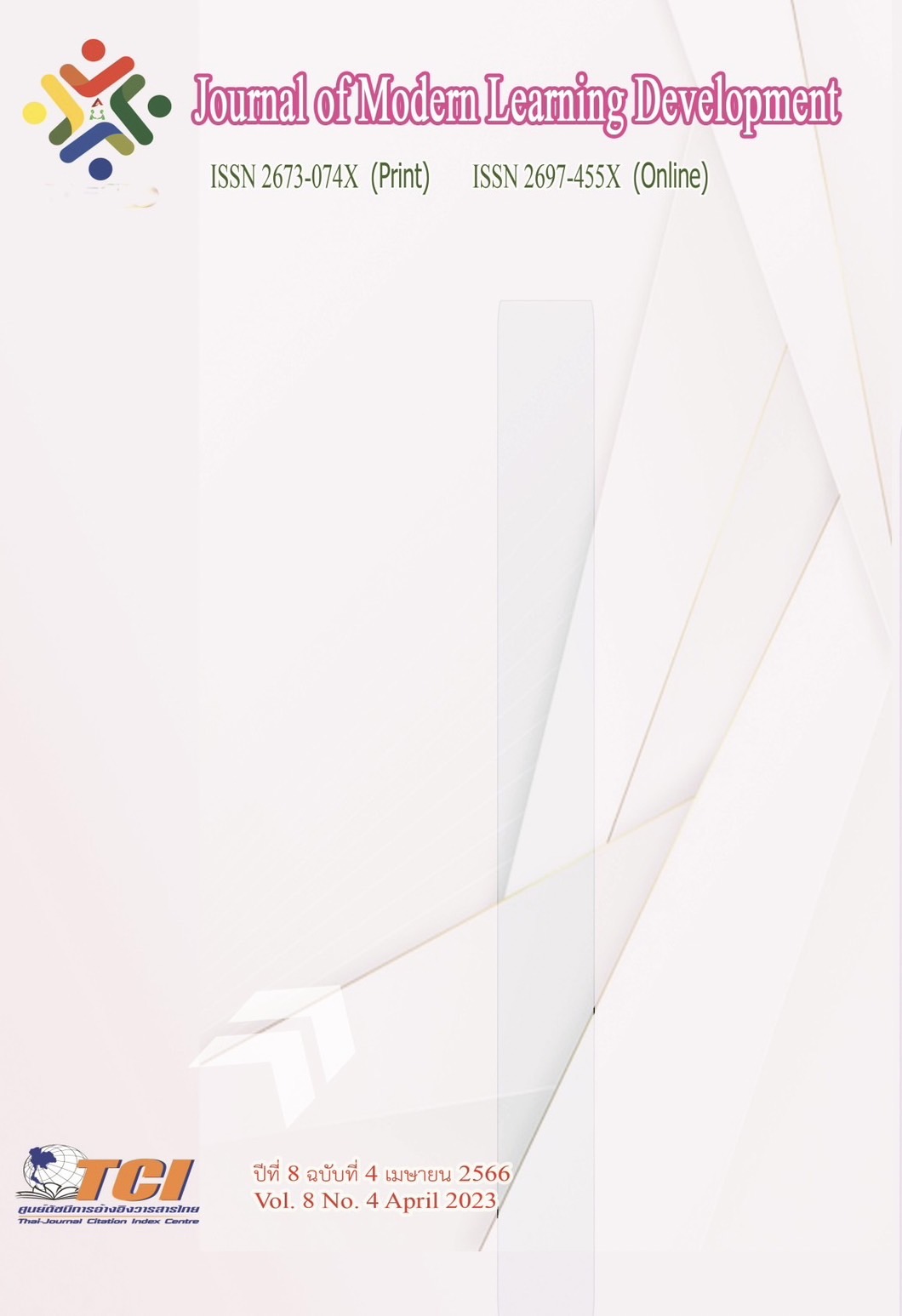Paradigm in New Local Administration
Main Article Content
Abstract
The evolution of Thailand's local administration system in the form of the old paradigm and the new paradigm of local governance that can be adapted under the changing global trend has forced Thailand to change various factors within the country, including those Political, social and economic to be in line with the changes that occur, There objective of this journal was to study the paradigm in the new local administration. It was found that the paradigm was important to the leaders of the local administrative organizations in the local development for the benefit of the people as the important goal for the sustainable development. It made the people could be self-reliance, had the good quality of life, were strong and had the knowledge. The local administrative organizations could apply the local wisdom for the local development suitable to the social geography of the local. It made the equity that was the heart of the society. The people were equal and got the opportunity in the development of the local administrative organizations equally. The local administrative organizations had the empowerment to the people with the process of the people participation for the development and solution in accordance with the demand of the people in the local and the productivity focusing on the administration efficient to the public benefit for the benefit of the people.
Article Details
References
โกวิทย์ พวงงาม. (2550). 100 ปีการปกครองท้องถิ่นไทย พ.ศ.2440 – 2540. กรุงเทพมหานคร: โครงการจัดพิมพ์คบไฟ.
จักรินทร์ ภูเขียวและคณะ. (2563). การจัดการตนเองของชุมชนและท้องถิ่นในภาวการณ์เปลี่ยนแปลงในปัจจุบัน. วารสาร มจร พุทธปัญญาปริทรรศน์, 5(3), 212-223.
ดำรงค์ วัฒนา และคณะ. (2544). การปกครองท้องถิ่น. กรุงเทพมหานคร: การวิจัยประเทศไทยกองทุน.
ทวีศักดิ์ สูทกวาทิน. (2550). การถ่ายโอนความสามารถด้านการจัดการทรัพยากรมนุษย์จากองค์การกลางบริหางานบุคคลภาครัฐให้กับหัวหน้าส่วนราชการ. กรุงเทพมหานคร :คณะรัฐประศาสนศาสตร์ สถาบันบัณฑิตพัฒนบริหารศาสตร์.
ปธาน สุวรรณมงคล. (2558). การบริหารงานภาครัฐกับการสร้างธรรมาภิบาล. กรุงเทพมหานคร : สถาบันพระปกเกล้า.
ปัณณธร เธียรชัยพฤกษ์. (2561). ทิศทางองค์กรปกครองส่วนท้องถิ่นไทยในอนาคต. วารสาร มจร พุทธปัญญาปริทรรศน์, 3 (2), 183-196.
ภาราดร แก้วบุตรดี, ศศิกิจจ์ อ่ำจุ้ย, สมบัติ นวลระอองและอาณัติ เดชจิตร. (2565).กระบวนทัศน์ใหม่กับการจัดการท้องถิ่นของประเทศไทย.วารสารวิจยวิชาการ. 5 (3), 303-310.
อํานวย บุญรัตนไมตรี, วัฒนา นนทชิตและธณกฤษ งามมีศรี. (2559). กระบวนทัศน์ใหม่ในการบริหารท้องถิ่น.วารสารรัฐประศาสนศาสตร์. 11 (2), 110-127.
อุดม ทุมโฆษิต. (2551). การปกครองท้องถิ่นสมัยใหม่ : บทเรียนจากประเทศพัฒนา. กรุงเทพมหานคร: คณะรัฐประศาสนศาสตร์ สถาบันบัณฑิตพัฒนบริหารศาสตร์.
Hood, C. (1991). A public management for all seasons.Public Administration, 69(1), 3-19.
Imrie, R., &Raco, M. (1999). How new is the new local governance Lessons from the United Kingdom. Transactions. 24 (1), 45-63.
Pierre, J., & Peters, B. (2005). Governing Complex Societies: Trajectories and Scenarios.New York: Palgrave Macmillan.


